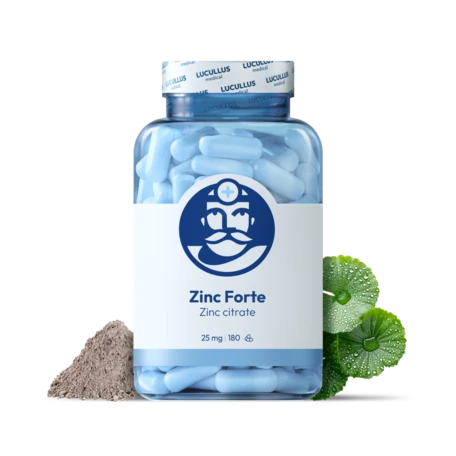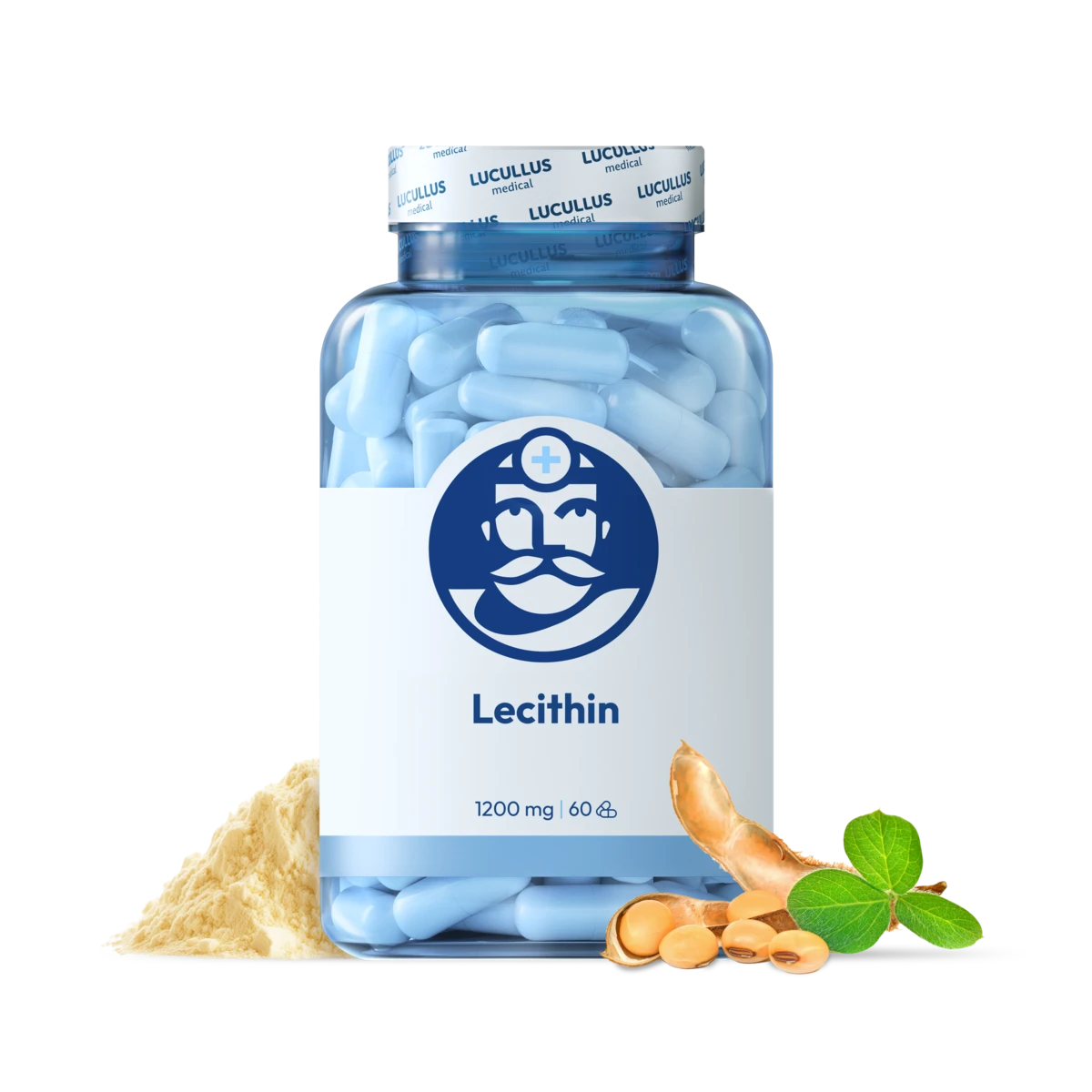
Účinky
Immune system supportCell function and DNA synthesisAntioxidant protectionSkin health and wound healingCognitive function
Pack of 60 capsules
| Active ingredient | In daily dose | % Ref |
|---|---|---|
| Lecithin (soy) | 1200 mg | - |
Ingredients: Lecithin, stabilizer: gelatin, emulsifier: glycerol, and water.


I recommend Lecithin because it has antioxidant properties that are beneficial to the body.
After a few weeks of taking Lecithin, my skin has improved and is now much smoother and healthier.
The perfect product to support liver health. I feel much better every day.

In each of our recipes, we invest in research to identify the right ingredients, compounds, and doses to achieve real benefits. We then manufacture our unique recipes in the most modern facilities in Slovakia.
It is often referred to as "brain food", it is involved in mental and nervous processes, helps maintain proper cholesterol levels.

Read the latest news about quality dietary supplements, vitamins, immunity, and health.

Je potrebné mať multivitamínov iba spôsob ako drahú moč? Inými slovami: ak namiesto jednotlivých suplementov a zodpovedného dávkovania dáme všetko do jednej krabičky - bude to mať zmysel? Áno aj nie - pozrime sa na to.

Hovorí sa, že kto nájde tabletku na chudnutie , ten sa stane najbohatším človekom na planéte. Dáva to zmysel, s nadváhou má problém obrovské množstvo ľudí na našej planéte. Podľa štatistík svetovej zdravotníckej organizácieHO každý ôsmy človek má typ: obezita. A nadváhou trpí viac ako 2,5 miliárd ľudí! Máme teda tabletku na chudnutie? Nuž áno aj nie...

Okrem známeho B-Komplex mix vitamínov skupiny B, je možné jednotlivé vitamíny kupovať aj ako soľ. Načo je to dobré? Známy súbor vitamínov skupiny B je vhodný doplnok výživy, máte celkový nedostatok vitamínov v tele. Ak však neriešite konkrétny problém, je niekedy vhodnejší konkrétny typ vitamínu, ktorý potrebujete doplniť. Načo je teda potrebný vitamín B2?

Jablčný ocot patrí medzi najobľúbenejšie prírodné produkty so širokospektrálnymi zdravotnými benefitmi. Jablčný ocot je už stáročia vyhľadávaný pre svoje účinky na zdravie, vrátane podpory trávenia, regulácie hmotnosti, udržiavania stabilnej hladiny cukru v krvi a zlepšovania kardiovaskulárneho zdravia.

Maybe it's burnout ... that's the current description of the state when we feel different. When the coffee we loved no longer works and in the afternoon we are overwhelmed by unbearable fatigue, when in the evening we have no strength for anything, neither for sports nor for friends. And certainly not for another day at work. A nutritionist would describe this state with further findings of our diet with the words - „ You have a lack of thiamine (B1), which is essential for the proper functioning of the nervous system and the conversion of food into energy. Your diet is full of processed carbohydrates, but almost without B1. And when the body doesn't have enough thiamine, you can feel fatigue, forgetfulness, irritability, and even anxiety. And caffeine? It depletes thiamine in the body even more!“ We certainly wouldn't think that this state could be caused by a “triviality”. After all, many of us don't register thiamine, I admit it was also my case. This first of the discovered vitamins in 1912 was named by the Polish biochemist Funk with the term vita (necessary for life), amine (substances that contain nitrogen). Since then, it has gained more names, like aneurin, and for 25 years we have called it thiamine. It is essential, meaning it cannot be synthesized and must come from the diet. It sounds almost frightening that without it we wouldn't survive longer than a few days, at most weeks. This is because the body cannot store it for long and it is necessary to ensure its intake regularly, as it is irreplaceable for the proper functioning of the organism. On the contrary, its abundance helps improve concentration and memory.

Sometimes it seems at first glance that we have everything under control, but the reality is often different. "Liters" of coffee, fast food between duties, endless deadlines, constantly ringing phones. The result is fatigue, problems with concentration, forgetting even simple things, moods changing faster than the weather, and nights full of tossing and turning, as if our mind is running at a minimum. In a hectic pace, we do not realize the importance of proper nutrition. The good news is that nature can save us, in nature everything can be in harmony if we combine it from nature, it is a mysterious duo of choline and inositol.It is an ideal combination not only for the body but also for a tired mind, which is calling for help. Although many are unaware of them, choline and inositol work in every cell of our body, keeping our brain in shape, liver clean, and nerves strong. Their effects were discovered relatively recently. Why should we pay attention to these nutrients?